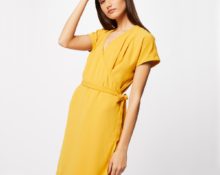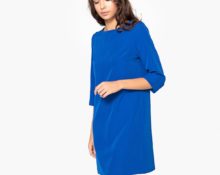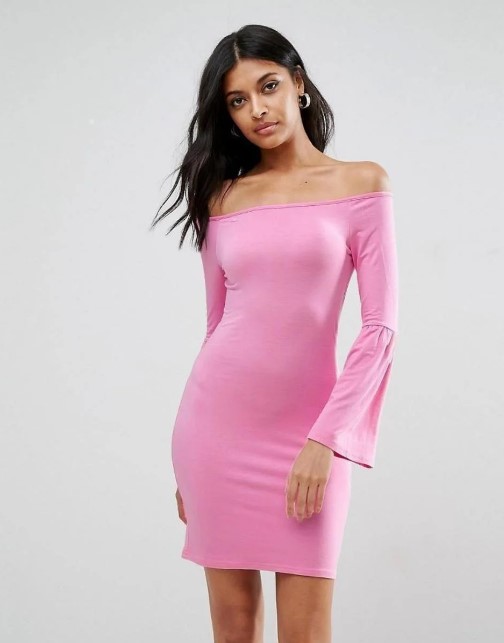 Open shoulders are always a symbol of a girl’s purity and fragility, which is why wedding and evening dresses are often sewn of this type. In fact, there are plenty of similar styles of dresses for everyday use, all you have to do is find your own. Let's take a closer look at the various options for open-shoulder bodice patterns.
Open shoulders are always a symbol of a girl’s purity and fragility, which is why wedding and evening dresses are often sewn of this type. In fact, there are plenty of similar styles of dresses for everyday use, all you have to do is find your own. Let's take a closer look at the various options for open-shoulder bodice patterns.
Choosing an off-shoulder dress model
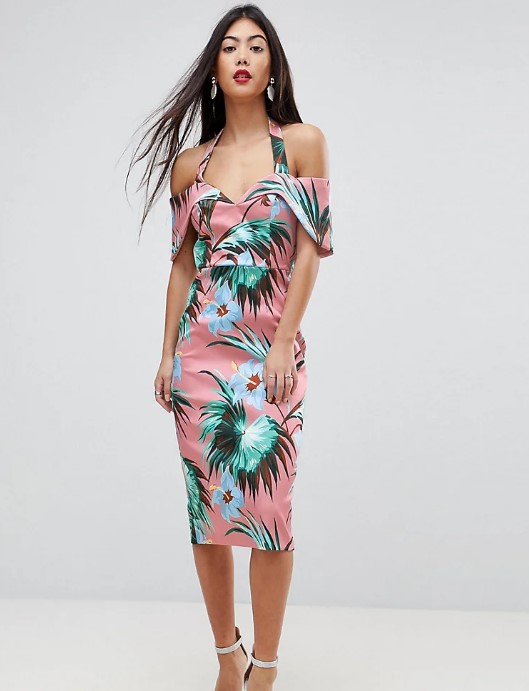 It is important to first decide whether both shoulders will be open or just one.
It is important to first decide whether both shoulders will be open or just one.
And is there any additional support at the free edge?
All variety of dresses Regarding straps, we can divide them into three types:
- there are no straps;
- straps available;
- The straps are tied around the neck or intertwined.
Advice! If you have broad shoulders, then you should not get carried away with dresses in the “Carmen” style.
A wide frill and flounce can successfully replace straps for us.
Skirts can also be different:
- One-piece straight or slightly flared.
- Tatyanka, godet, sun or bell skirt, cut at the waist.
Topical fabrics:
- sewing;
- batiste;
- guipure, lace;
- crepe;
- chiffon, georgette;
- thin knitwear;
- thin stretch denim.
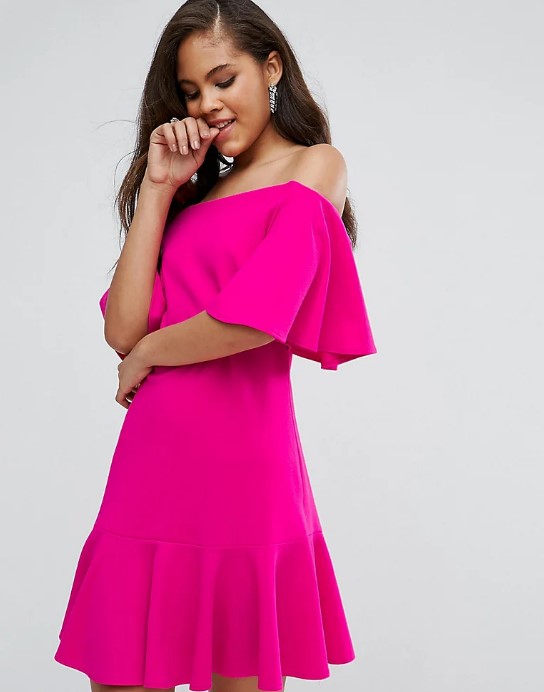 Colors and patterns:
Colors and patterns:
- strip;
- floral prints;
- plain fabrics of rich colors - red, black, green, royal blue, light blue, ocher.
Advice! If you have a “pear” figure, that is, narrow shoulders, wide hips, then this style is definitely for you!
Calculation of suitable material
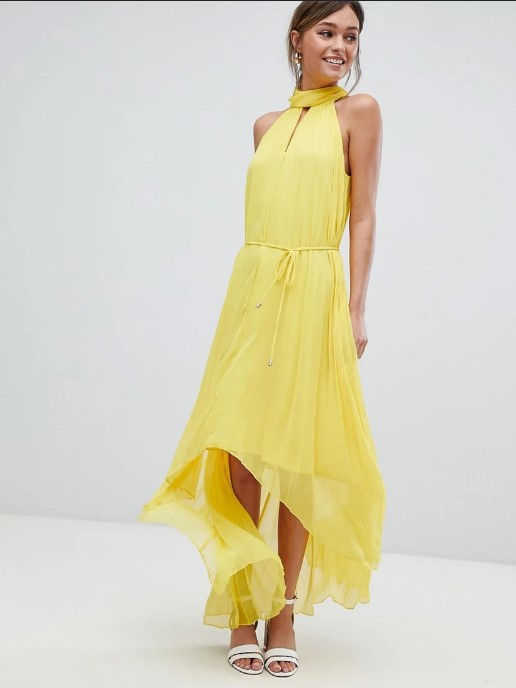
To sew a dress with open shoulders, we will need an amount of fabric equal to its length, plus a hem allowance of 10cm, plus the length of the frill or flounce. This is true for a fabric width of 140-150 cm.
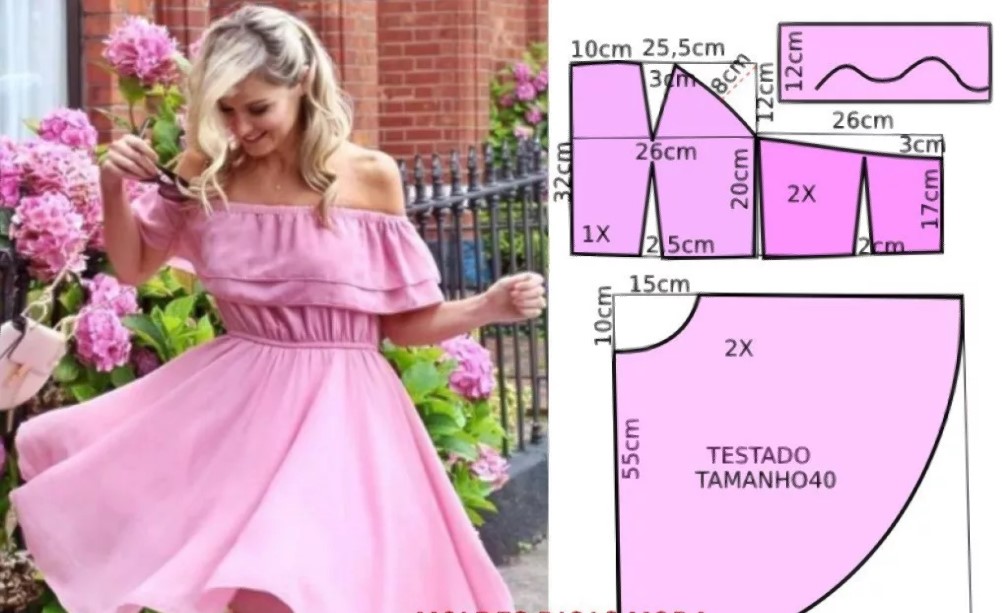
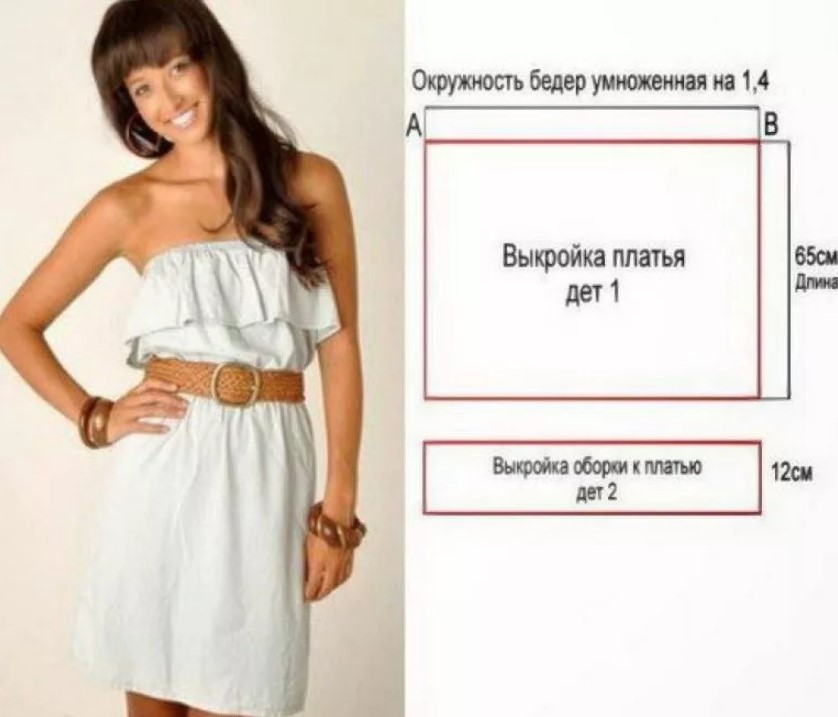 With a smaller width, we need double the length. If your dress has sleeves, then add their length.
With a smaller width, we need double the length. If your dress has sleeves, then add their length.
Construction of the base pattern
Model 1 with raglan sleeves
It is most convenient to design a dress with dropped open shoulders based on a pattern, suggesting raglan sleeves.
If initially there is no such thing, then a base pattern or even an old but well-fitting blouse will come to the rescue. By the way, she will have to be sacrificed.
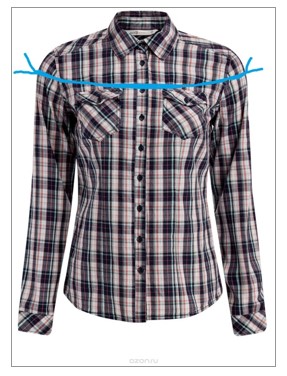 Stages of work:
Stages of work:
- We cut the top of the product to the level of our future neck.
- We rip off the sleeves.
- We open the blouse and outline the relief of the armhole; we need the outline of the future sleeve.
- We extend the resulting sleeve and the shelf with the back along the upper side by 10 cm for comfortable use. This is the future drawstring.
- Along the bottom, the front and back are extended to the required length of the dress, taking into account the style of skirt you have chosen.
- If the skirt is stiched, then it is advisable to make it a “tatyanka” type, the width is equal to the volume of the hips multiplied by 1.5.
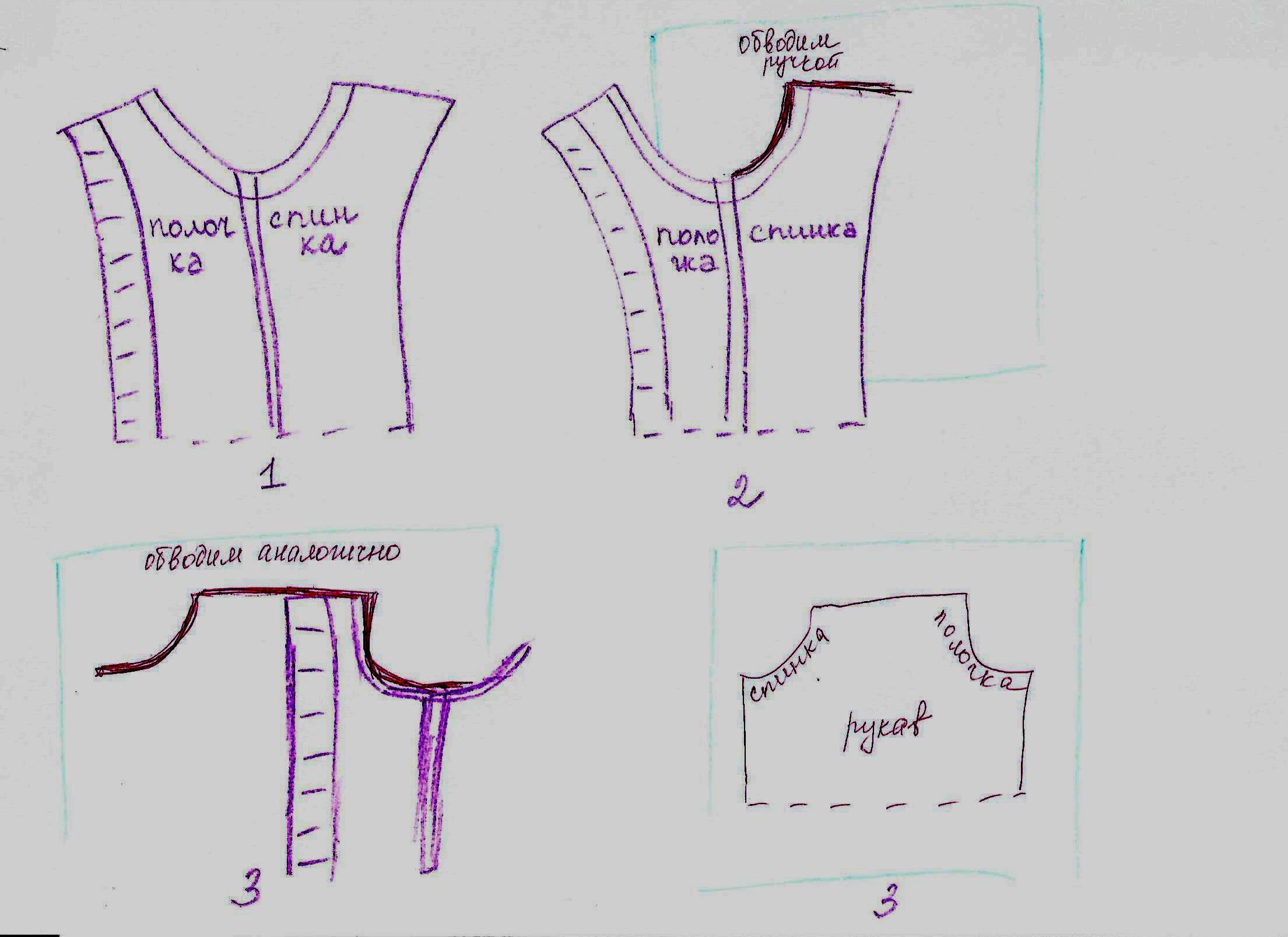
Open shoulder bodice and sleeve pattern
Fitted model 2 with flared skirt
Modeling is carried out using a base pattern.
Only the middle part remains from the sleeve pattern. But the chest and waist darts remain in place.The dress turns out to be tight-fitting; it is better to sew it from elastic materials.
We cut out the lower part to your liking, best in this case The sun, bell or godet will do.
Sun skirt pattern:
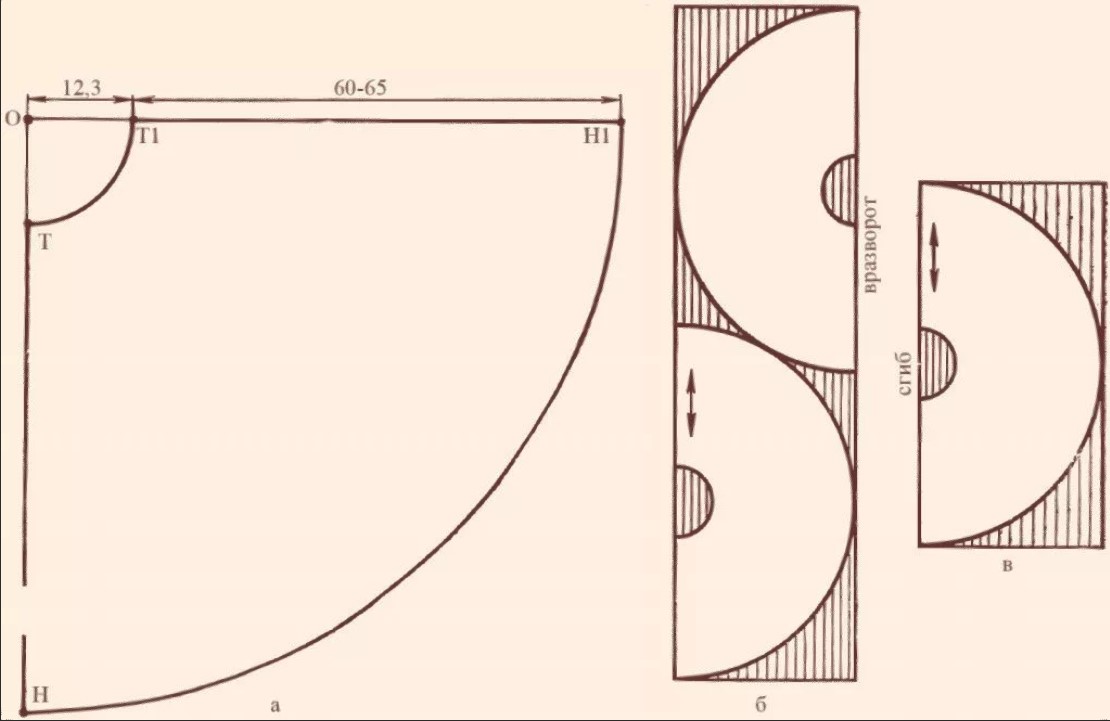
Bell skirt pattern:
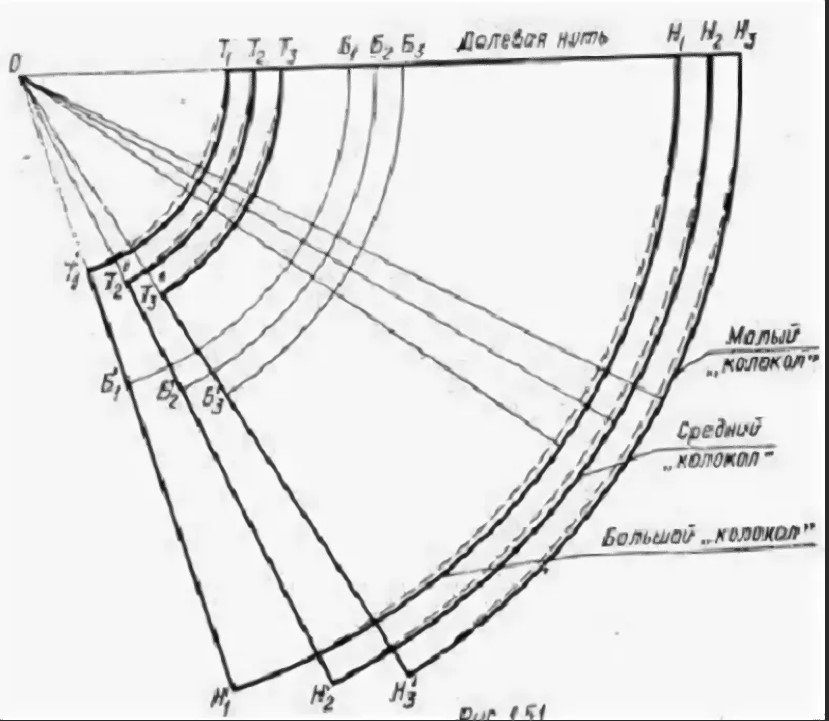
Designations in the figure: T (waist line), B (hip line), H (skirt length).
Godet skirt pattern:
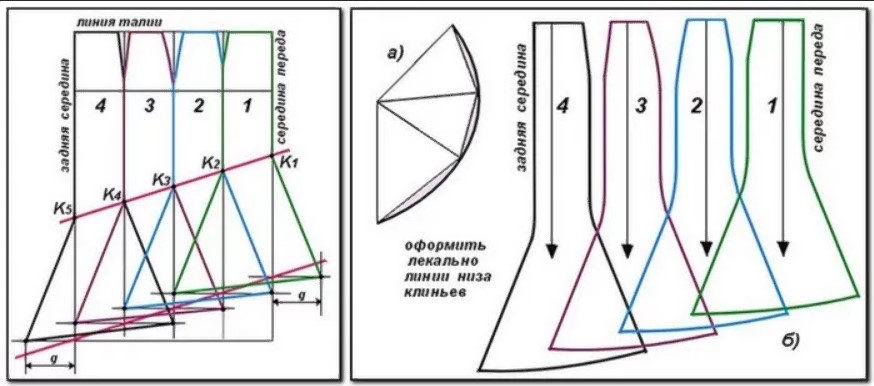
Sequence of work:
- To construct, you need to attach the sleeve pattern to the shelf.
- Continue the line of the new neckline onto the sleeve.
- We do the same with the back.
Model 3 with one open shoulder
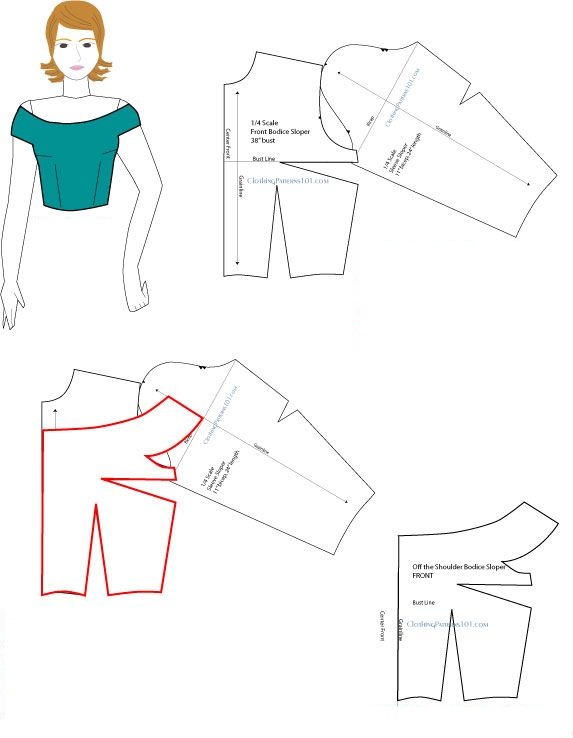
One shoulder remains open.
We also change the pattern - the base:
- We close the waist and shoulder darts.
- We remove the material from one shoulder.
- Along the waist line we remove 1.5 cm.
- Add 1 and 2 cm along the shoulder.
- We put these resulting 3 centimeters into folds or tucks.
- On the side left without a shoulder, we open the chest dart.
- We work with the back in the same way.
Model 4 with raglan and “Peasant Young Ladies” bodice
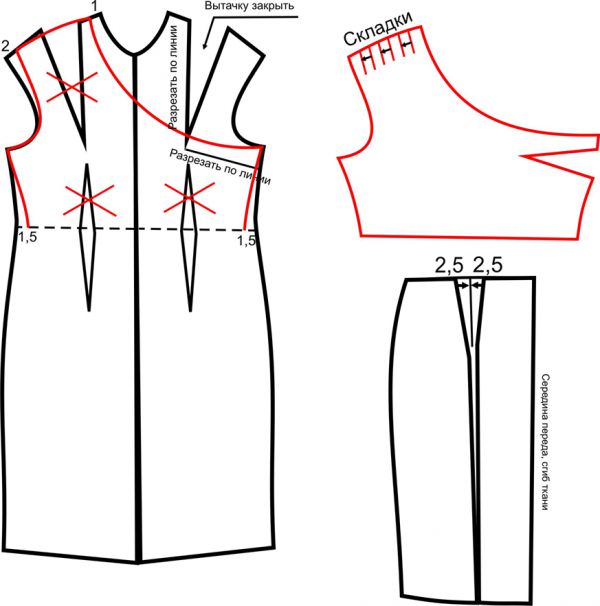
Simplest version of the dress with the “Peasant Young Lady” bodice You can sew a blouse pattern based on raglan.
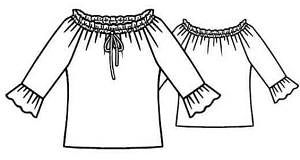 Depending on how far you open the drawstring lace, the shoulders will be less or more exposed.
Depending on how far you open the drawstring lace, the shoulders will be less or more exposed.
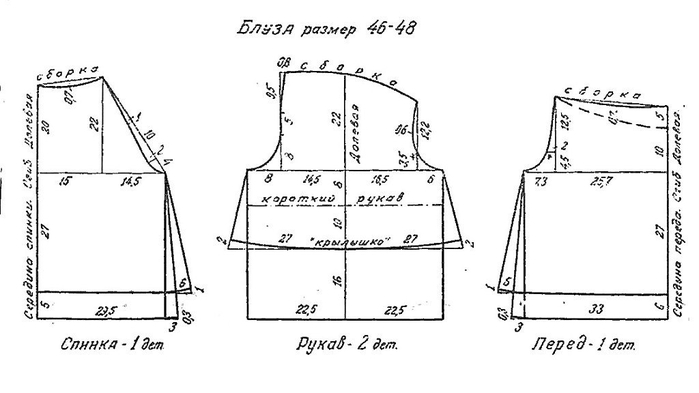
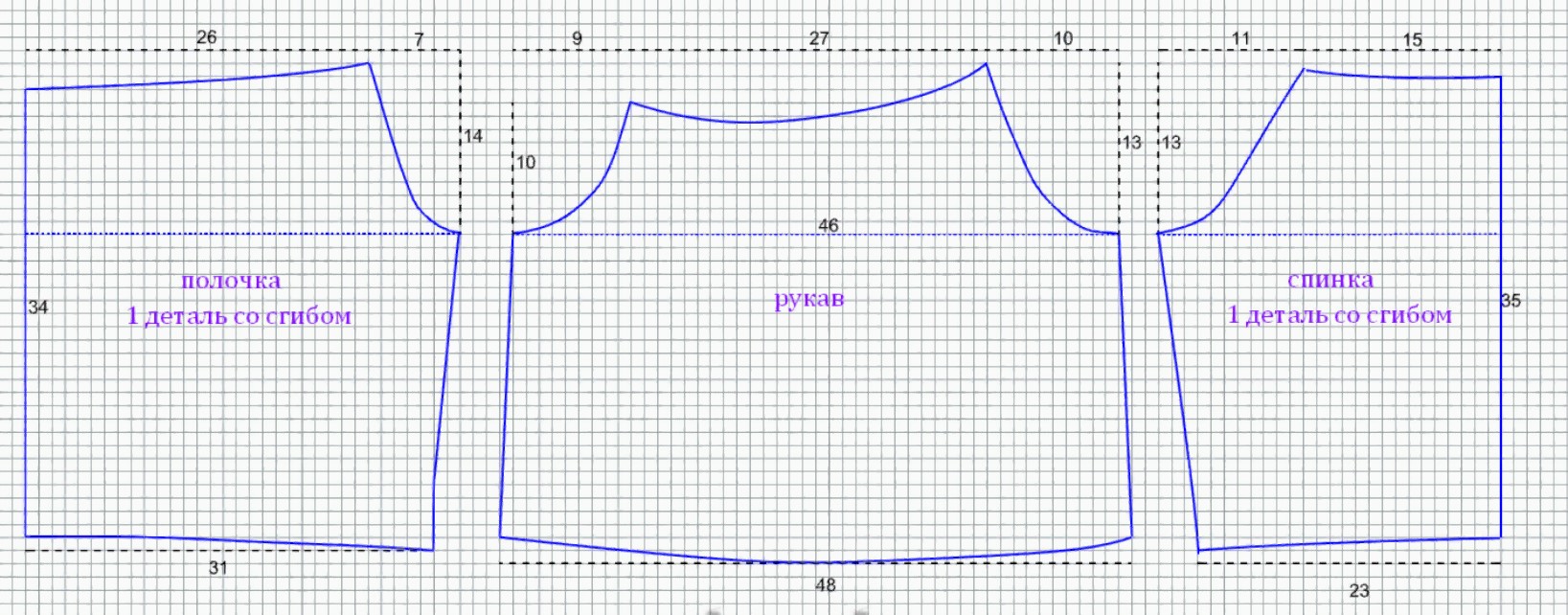
Pattern of bodice with open shoulders OG=100-106 cm
Important! We must add the required length of the skirt to the top pattern.
It is recommended to make this wide dress with a one-piece skirt; for this, in the center of the front and back, add the required number of centimeters down to a comfortable length.
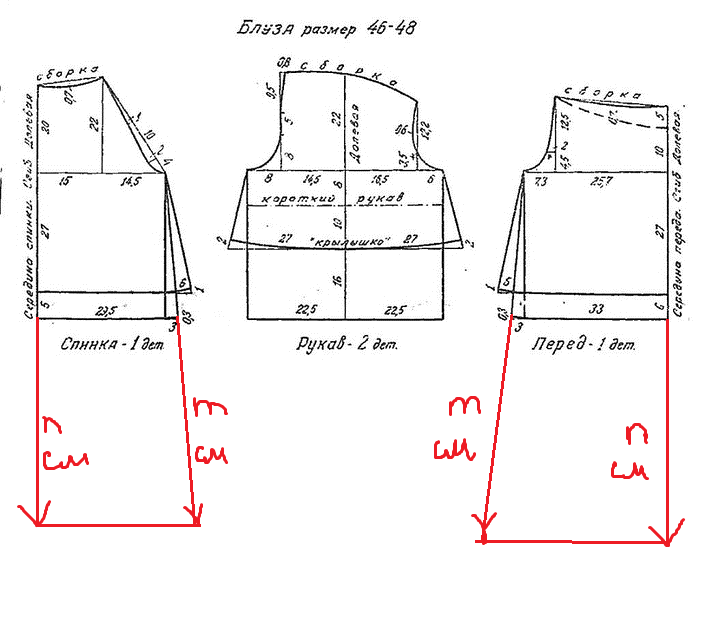 Dress pattern details:
Dress pattern details:
- The back is one piece with a fold. If desired, with a seam.
- The front (shelf) is one piece with a fold. If desired, with a seam.
- Sleeve – 2 parts.
- Ruffles – optional, you can use leftover scraps of fabric.
Cutting off-shoulder dresses
If the cut is asymmetrical, then we cut only on fabric laid out in one layer.
- We fold the material in half, face to face (with a symmetrical arrangement of elements).
- Lay out the pattern pieces on the prepared fabric.
- We shallow it, not forgetting the seam allowances.
- Cut it out.

Important! We first check on a small piece of material to see if it is fading or shrinking.
Sewing sequence

Required:
- Dress fabric according to calculations.
- Bias tape.
- Threads to match.
- Sewing machine.


Progress:
- We process darts, if any.
- We sew the back seam (if it is supposed to be in this model).
- Iron the seam allowances. We perform this procedure with each seam.
- We turn the drawstring and stitch it.
- We sew the front seam.
- Sew the side seams.
- If the skirt is stitched, then we sew the seams of the skirt, then sew it to the top.
- We bend the hem and stitch it.
- We process the cuts with bias tape, if necessary, use facings.
- We thread a lace or elastic band into the drawstring.
- Ironing.
- Let's try it on.
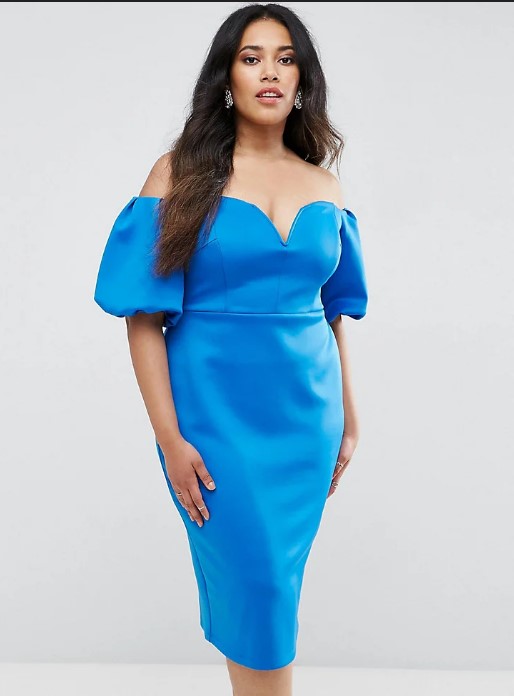 When making an off-the-shoulder dress, of course, you have to spend time, but the result is worth it. In addition, this style offers a wide range of options, which is good news.
When making an off-the-shoulder dress, of course, you have to spend time, but the result is worth it. In addition, this style offers a wide range of options, which is good news.


 0
0



